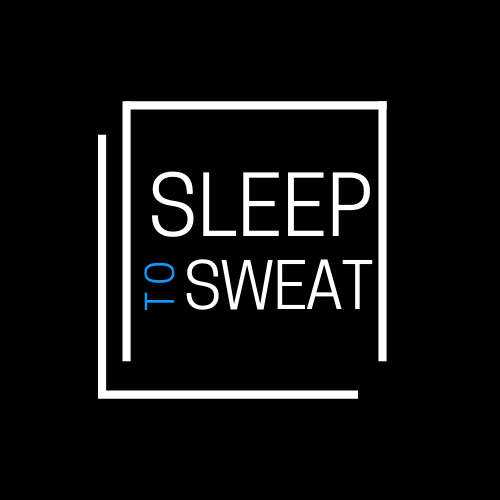Revitalize your body and mind.
dedicated to helping readers achieve their fitness and wellness goals through the power of sleep.


Committed to expertise
Real sleep tips for real people.
At Sleep to Sweat, we understand that fitness and wellness are not just about working out and eating well. They are also about giving your body the time and space it needs to recover and recharge. That's why we focus on the importance of sleep and how it can help our readers achieve their desired results.
Your sleep is our forte.
We believe that quality sleep is the foundation of a healthy and active lifestyle
Healthy sleep, healthy life.

The Importance of Sleep for Better Health
In today’s fast-paced world, sleep is often viewed as a luxury rather than a necessity. However, getting sufficient quality sleep is one of the most essential pillars of good health. Sleep impacts every aspect of your physical, mental, and emotional well-being. Here’s why prioritizing rest is crucial for a healthier, happier life and tips to improve your sleep quality.
Why Sleep is Vital for Health
Supports Physical Health
Sleep plays a key role in muscle repair, immune function, and overall body recovery.
Chronic sleep deprivation is linked to an increased risk of heart disease, diabetes, and obesity.
Boosts Mental Clarity and Focus
During sleep, the brain consolidates memories and processes information from the day.
Lack of sleep can impair concentration, decision-making, and creativity.
Regulates Emotional Well-Being
Quality sleep helps manage stress and maintain emotional balance.
Insufficient sleep is associated with anxiety, depression, and mood swings.
Strengthens the Immune System
A well-rested body produces more infection-fighting cells and antibodies.
Sleep deprivation weakens the immune system, making you more susceptible to illnesses.
Enhances Metabolic and Hormonal Health
Sleep regulates hormones like insulin and cortisol, which are critical for metabolism.
Poor sleep can lead to weight gain by increasing hunger hormones and reducing satiety.
How Much Sleep Do You Need?
The amount of sleep you need depends on your age and individual lifestyle, but general recommendations are:
Adults: 7–9 hours per night
Teens: 8–10 hours
Children: 9–11 hours
Infants: 12–15 hours
Tip: If you feel refreshed and alert during the day, you're likely getting the right amount of sleep for your body.
The Consequences of Poor Sleep
When you don’t get enough sleep, the impact is noticeable in both the short and long term:
Short-term effects: Fatigue, irritability, difficulty concentrating, and reduced productivity.
Long-term effects: Chronic health problems, weakened immunity, premature aging, and increased risk of mental health disorders.
Tips for Better Sleep
Improving your sleep quality doesn’t have to be complicated. Here are actionable strategies to ensure you rest well:
Stick to a Sleep Schedule
Go to bed and wake up at the same time every day, even on weekends.
A consistent routine helps regulate your body’s internal clock.
Create a Relaxing Bedtime Ritual
Wind down with calming activities like reading, meditating, or taking a warm bath.
Avoid screens at least an hour before bed, as blue light interferes with melatonin production.
Optimize Your Sleep Environment
Keep your bedroom cool, dark, and quiet.
Invest in a comfortable mattress and pillows that support your sleep posture.
Limit Caffeine and Alcohol
Avoid consuming caffeine in the late afternoon or evening.
Limit alcohol intake, as it can disrupt your sleep cycle.
Stay Active During the Day
Regular exercise promotes deeper sleep, but avoid vigorous workouts close to bedtime.
Even a daily walk can make a big difference.
Watch Your Diet
Avoid heavy or spicy meals late in the evening.
Opt for sleep-friendly foods like bananas, almonds, or oatmeal if you need a light snack before bed.
Manage Stress
Practice relaxation techniques like deep breathing or mindfulness to calm your mind.
Journaling before bed can help clear your thoughts and prepare you for rest.
The Link Between Sleep and Overall Wellness
Sleep is not just about rest; it’s about restoration. When you sleep well:
Your energy improves. You’ll feel more alert and capable of tackling daily challenges.
Your mood stabilizes. Adequate sleep reduces stress and enhances emotional resilience.
Your productivity increases. Sleep enhances cognitive functions like memory, problem-solving, and creativity.
Your health thrives. Consistent sleep lowers the risk of chronic diseases and boosts longevity.
Sleep is a non-negotiable part of a healthy lifestyle. It’s as important as nutrition and exercise in maintaining your overall well-being. If you’ve been neglecting your sleep, start by making small adjustments to your routine and environment. Over time, these changes will help you feel more energized, focused, and resilient.
Remember: Prioritizing sleep is an investment in your health and happiness. Give yourself the rest you deserve, and your body and mind will thank you for it!
One or more of the links above are affiliate links, meaning, at no additional cost to you, we will earn a slight commission if you click through and make a purchase. Each of these products is chosen by a trusted member of our team.



